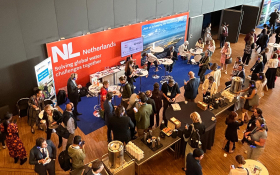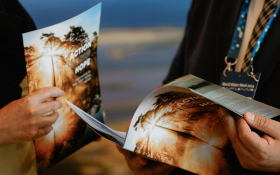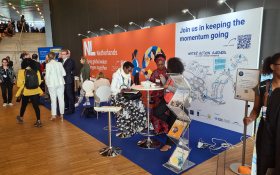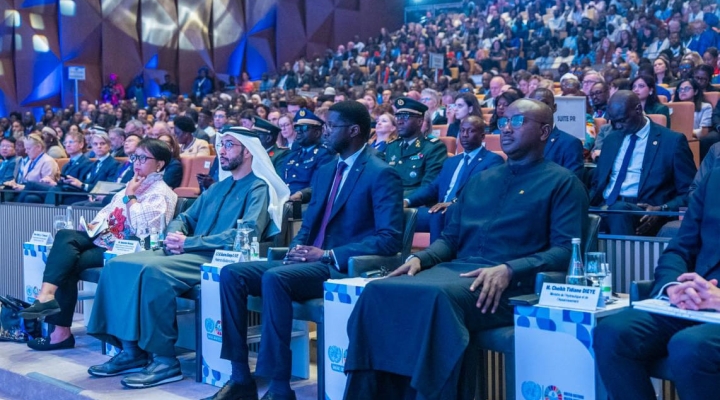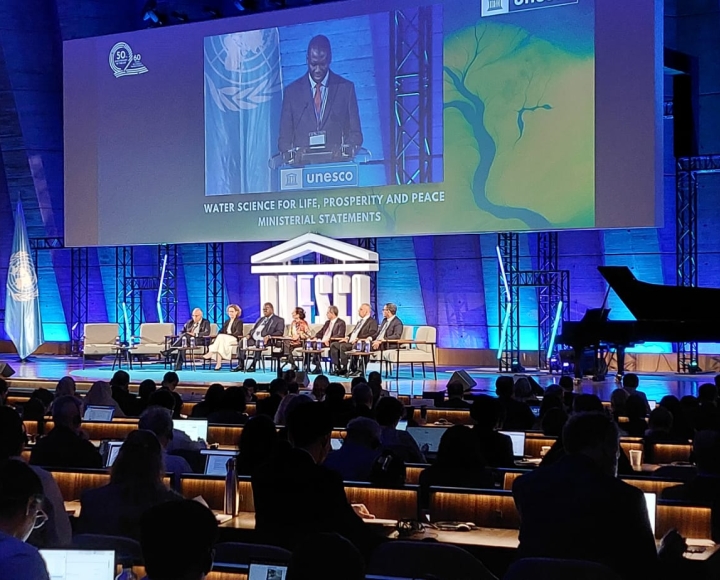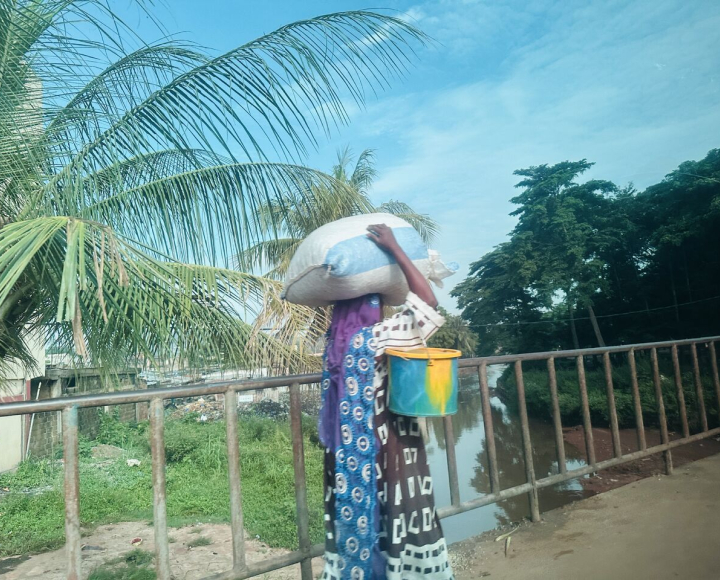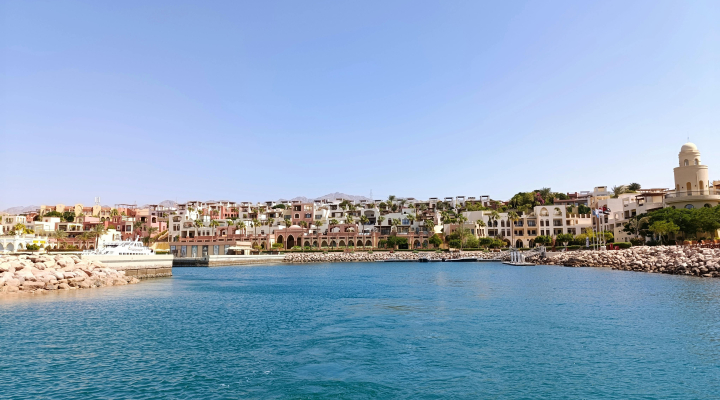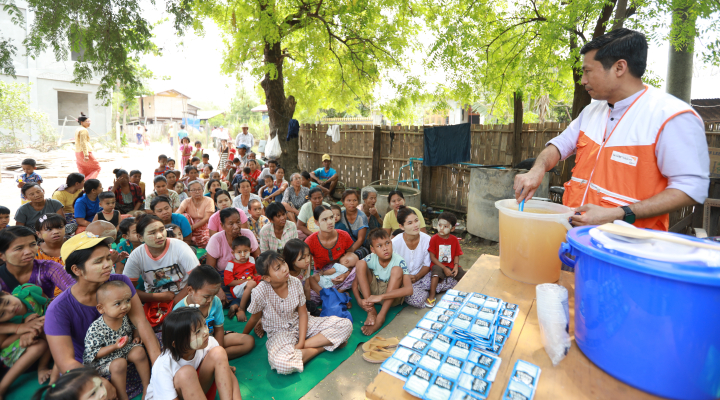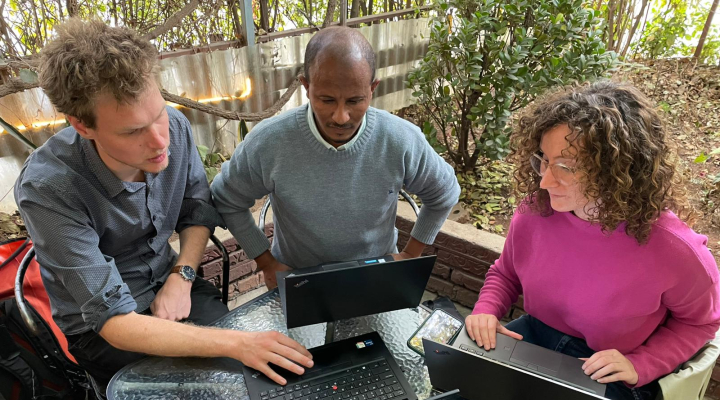Stockholm World Water Week: Water for all includes the most difficult to reach
"Let us design WASH programmes together. Include us, disabled people, and do not impose interventions that exclude us further. Let’s walk together".
This was the personal and confronting call by Safia Nalule Juuko at the opening plenary of the Stockholm World Water Week (SWWW) on 26 August. Juuko is a disabled Ugandan parliamentarian who spoke to the world water community from her own experiences.
Leaving no one behind
Disabled people are one the groups, next to refugees, neglected, indigenous and very poor people, for whom access to clean water and sanitation seems difficult to realise. Juuko’s message fits in with the theme of this year’s SWWW-edition, being 'Water for society - including all’. It also links to the World Water Day 2019 theme ‘Leaving on one behind'.
Many sessions throughout the week address the issue of providing access to clean water and decent toilets for marginalized individuals and groups in villages and cities. Circumstances around these groups make it hard to reach universal access to water for all in 2030, as aimed by Sustainable Development Goal #6 on water.
The Ugandan disability activist explained some of the difficulties for disabled people in Uganda. “If I get a water tank it needs services. For the maintenance I am still depended on you. Do not look at my disabilities but at my abilities”, she said to water specialists in the audience involved in designing the WASH-programmes. She also warned for the possibilities of disabled people drowning when collecting water from rivers or falling into latrines.
According to Juuko the willingness is there amongst politicians for a disability inclusive WASH approach, but it is lacking funds. "Regulation is needed to allocate budget", Juuko said.
Healthy lakes
Another speaker at the opening plenary representing a group that should not be left behind, was Angela Code who made a plea for clean water for the indigenous people in Canada. Code grew up in a Sayisi Dene First Nation settlement in Manitoba. Her problem is not so much the access to clean water, but the prevention of pollution of rivers and lakes.
In the panel session lead by Dutch water envoy Henk Ovink, she addressed the dependency of her people on land and water. "We are getting the fish back in the lakes", was Code’s positive message. "Canada has a national water quality programme. Let us help. Tape into us and do not impose plans that have been made elsewhere."
Extreme poor
It was noted that it will be a hard job to get everybody included and connected with piped systems, local water kiosks and even individual solutions at household level. And even so, many extreme poor are not included in the data, especially in slums as they lack a registered address. It will be difficult to tailor WASH-projects to the many different marginalized groups. According to the discussions, policy decisions are needed.
Natured based solutions
The involvement of stakeholders was also a topic at the session on financing nature based solutions. Dutch water envoy Henk Ovink delivered a keynote speech warning that investments in water infrastructures are on the wrong track. “Business as usual is lethal”, Ovink said.
He mentioned the example of the Indian city of Chennai that was flooded only four years ago and is now facing serious water shortages. Ovink noted the reflex to invest in widening the capacity of storm drains to prevent floods. As part of the Water as Leverage programme, Ovink is involved in looking at nature based solutions as an alternative approach. "We are looking into wetlands that can absorb the water. Instead of constructing desalination plants for the production of drinking water, we are studying a system of many small scale nature based solutions", he told the audience. The initiative, called 'City of 1,000 tanks', calls for an urban strategy to combat floods, droughts and pollution through blue-green infrastructure.
Stay tuned
Stay tuned as more news items on this website will keep you posted on the Dutch contribution to the Stockholm World Water Week. Visitors of the event are kindly invited to visit the Holland pavilion, booth C08, and get in contact with the Dutch water sector.




